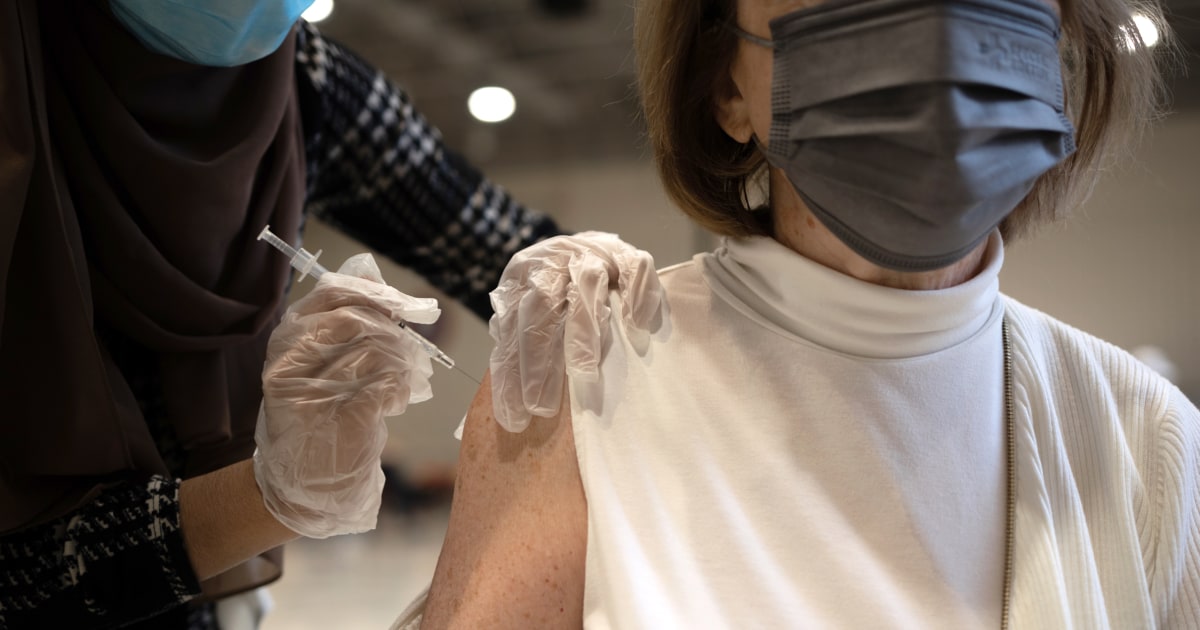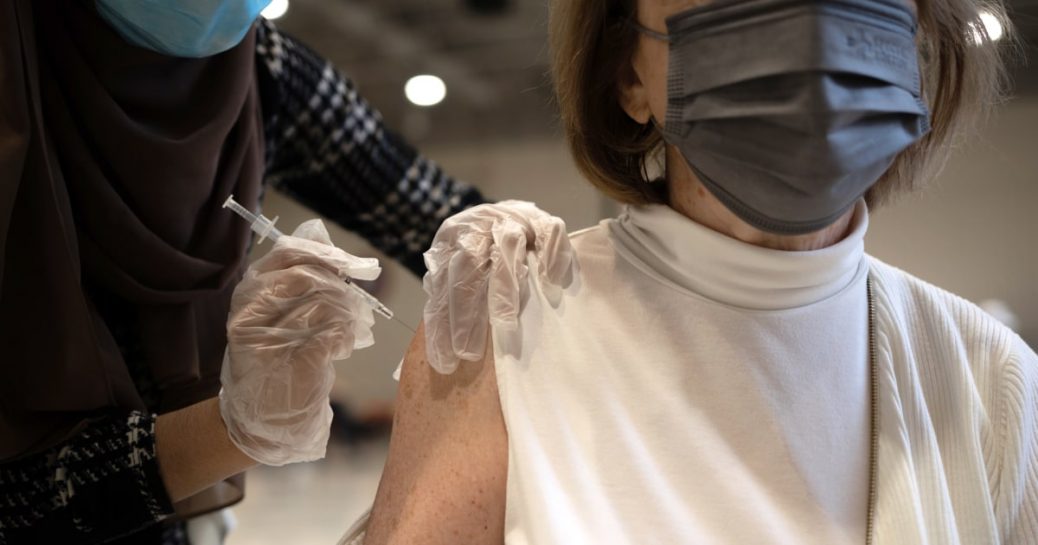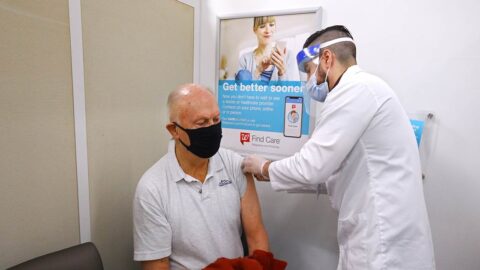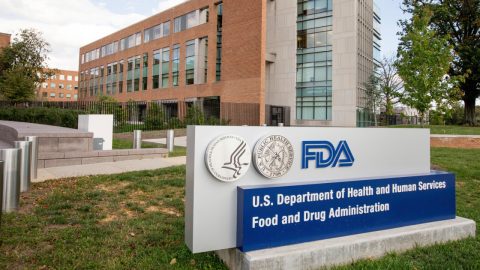
Food and Drug Administration advisers will meet Thursday to discuss how the next round of Covid boosters should be updated to target strains that may be circulating this fall.
Time is of the essence: The FDA needs to soon pick the strain, or strains, that it thinks will be prevalent later this year, so drugmakers have enough time to manufacture the new shots.
It’s an approach that is similar to how the strains are selected for the yearly flu shot. Scientists assess what strains of the virus are in circulation, and make estimated guesses about which will be the most prevalent, and therefore will be included in the vaccine.
This will be only the second time the Covid vaccines have been updated. Last year, the FDA authorized new shots that targeted both the original coronavirus strain as well as the BA.4 and BA.5 omicron subvariants, two strains that are no longer in circulation in the U.S. The first iteration of the vaccines, authorized in December 2020, only targeted the original coronavirus.
In briefing documents published online Monday, scientists at the FDA said the redesigned boosters should target at least one of the dominant variants of XBB, a strain that emerged in October and stems from two omicron subvariants.
New XBB strains have continued to emerge since last fall.
As of Saturday, XBB.1.5 is the dominant strain circulating in the United States, making up roughly 40% of all new Covid cases, according to the Centers for Disease Control and Prevention. That’s followed by XBB.1.16 (dubbed “Arcturus” on social media) and XBB.1.9.1, which make up about 18% and 12% of all new cases, respectively. The XBB strains haven’t caused a surge in cases as much as previous variants.
In the documents, FDA scientists said real-world studies show that although the current updated boosters in use in the U.S. do provide protection against XBB.1.5, the antibodies generated appear to be lower than what’s seen against BA.4 and BA.5.
“These data suggest that an updated strain composition of Covid-19 vaccines to more closely match currently circulating Omicron sublineages is warranted for the 2023–2024 vaccination campaign,” the scientists wrote.
If the new vaccines are updated to target some form of XBB, they would be in line with the World Health Organization, which recommended in May that the next round of Covid boosters target XBB subvariants, as well as the European Medicines Agency, which backed the WHO’s recommendation in June. (It is the WHO that makes the recommendations for the flu vaccine each year, which countries, including the U.S., typically follow.)
Who will get the new booster?
The FDA advisory committee, called the Vaccines and Related Biological Products Advisory Committee, will be asked which specific XBB lineage should be included in the vaccine, according to the FDA’s briefing documents.
It’s unclear if the new vaccines will be recommended for everyone this fall. A CDC advisory committee, called Advisory Committee on Immunization Practices, is scheduled to meet next week to talk about updated Covid boosters, among other vaccines.
Dr. Ofer Levy, the director of the Precision Vaccines Program at Boston Children’s Hospital, said that it would make sense for everyone in the U.S. to get a Covid booster every year.
“In my mind, it seems like a logical framework,” said Levy, who is a member of the FDA’s advisory committee and will be involved in Thursday’s meeting. “It will boost your antibody response and it probably affects your T cells as well, in a positive way.”
It is also still unclear if the FDA will ask that the new vaccines still target the original coronavirus strain, which was identified in late 2019, in addition to an XBB strain. A vaccine that targets two strains is called a bivalent vaccine.
The WHO said in May that one recommended approach would be to make the new booster a monovalent vaccine, meaning that it would only target one circulating strain. FDA scientists in the briefing documents also floated the idea.
Dr. Isaac Bogoch, an infectious disease specialist at the University of Toronto, said he doesn’t see what the “added benefit” of including the original strain in the vaccine would be, given that the strains currently in circulation have diverged so much from the original.
“It seems to make sense to cover XBB,” Bogoch said.
Follow NBC HEALTH on Twitter & Facebook.








Recent Comments